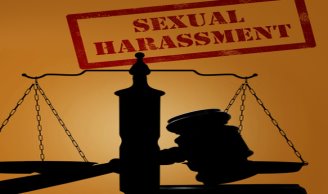Practice Areas / Labor & Employment Law
Sexual Harassment

Sexual harassment is a big deal in the workplace for both men and women, and often times goes completely ignored by employers. Sexual harassment, as defined by the Equal Opportunity Employment Commission (EEOC) is defined as unwelcome sexual advances, comments, requests, demands for sexual favors, or any other action (verbal included) of an unwanted, sexual nature.
In other words, sexual harassment can be considered any conduct of a sexual nature that interferes with a person’s ability to do their job, or creates an intimidating, hostile or offensive environment.
Sexual harassment is illegal
Sexual harassment violates Title VII of the Civil Rights Act of 1964, which is a Federal law prohibiting discrimination in employment based on race, color, sex, national origin and religion. This Federal law applies to employers with 15 or more employees.
While a Federally mandated anti-discrimination law is a great idea, like any law, its existence doesn’t mean it will be followed. Despite its creation, many people worldwide experience sexual harassment in the workplace on a daily basis.
Types of sexual harassment
Under Title VII there are two types of sexual harassment. The first is quid pro quo, and the second is a hostile work environment.
Quid pro quo
This type of sexual harassment occurs when a person in authority, like a manager, forces an employee to tolerate their harassment in order for them to get or keep their job, or a benefit like a promotion or a raise.
Hostile work environment
Whenever there is a pattern of frequent sexual harassment incidents that is considered to be a hostile work environment. This can consist of both physical and verbal unwanted sexual conduct directed toward one or more people.
Proving sexual harassment
In order to prove sexual harassment by a supervisor, you will need to provide proof of a tangible action such as being demoted, having your pay docked, being moved to a different department, having your assignments changed, etc. In order to prove sexual harassment by a coworker, you’ll have to prove that the employer knew about the harassment and did nothing to stop it. You will also need to prove that the work environment has been made hostile due to the behavior.
Your employer’s only defense will be to prove that they exercised reasonable care to prevent the harassment. Also, they must prove that they took immediate corrective action to stop the harassment once they became aware of it.
If your employer is not subject to Title VII, there are other options
Only employers with 15 or more employees are subject to Title VII, however, there are state and other Federal laws that govern sexual harassment as well. So if you are an employee of a company who is not subject to Title VII, it does not mean you don’t have a case. Contact a qualified lawyer to discuss your situation and find out what your options are.
Document everything
If you feel that you are being sexually harassed, document everything you can. Write down dates and times, conversations, comments, and everything you can right as it happens so it is as accurate as possible. You’ll also want to file a report with your Human Resources department. They may be able to help you put a stop to the situation. If they can’t, or don’t seem helpful, you’ll want to contact a lawyer right away.



